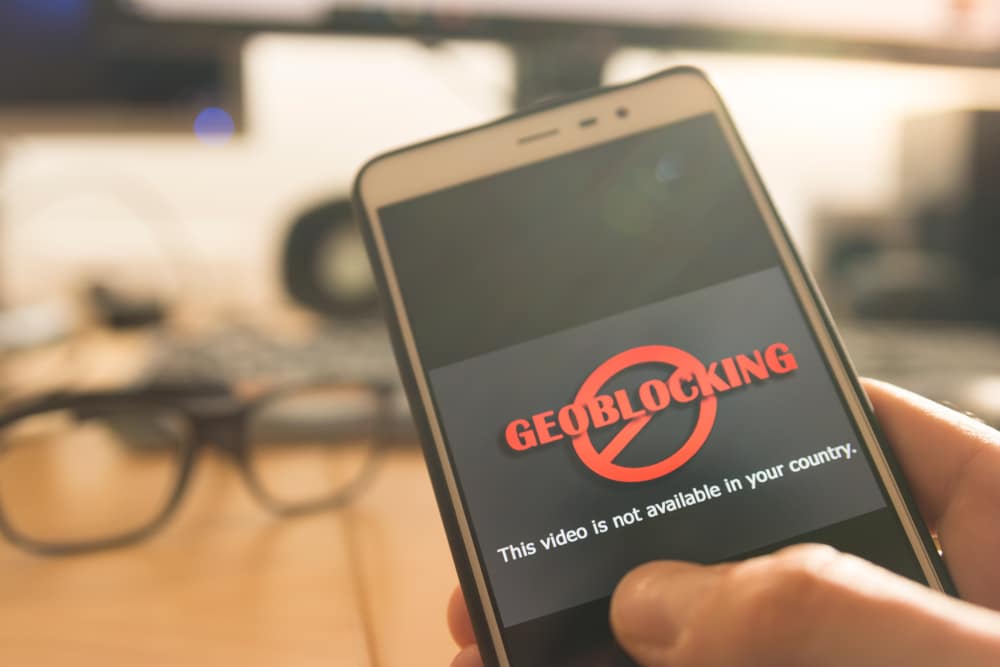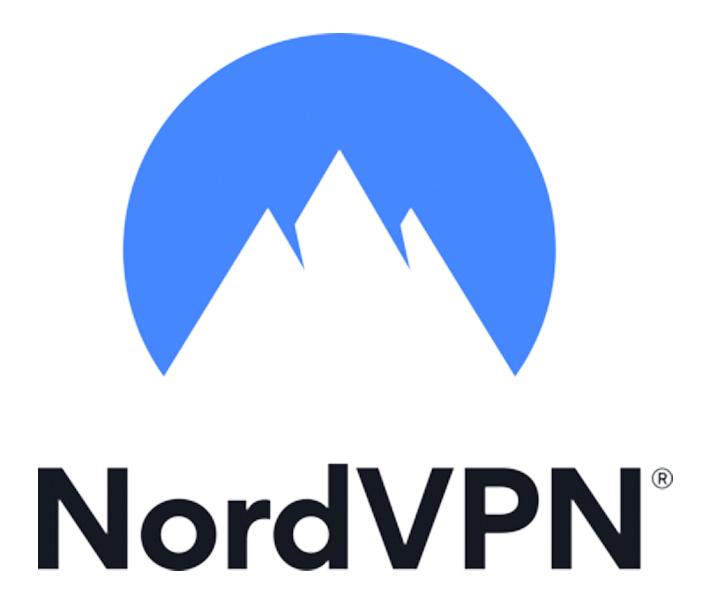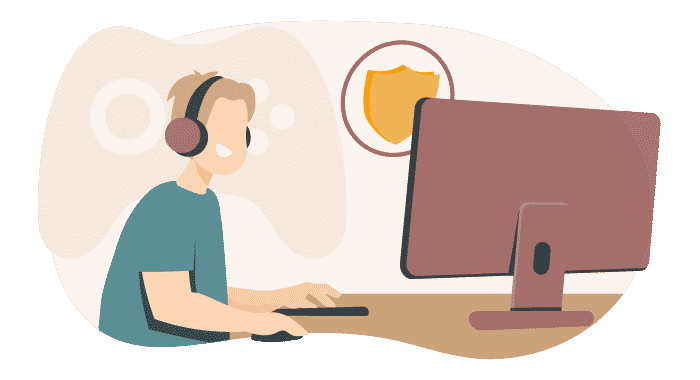Tekniske termer – En ordliste for VPN-verdenen
Sist oppdatert: 31/03/2025
Denne ordlisten forklarer vanlige VPN-begreper på et enkelt språk. Hver term har en lettfattelig definisjon, hvorfor det er viktig for VPN-bruk, og et eksempel på hvordan det gjelder for vanlige brukere.
1. VPN (Virtuelt Privat Nettverk)
Definisjon: En VPN er en tjeneste eller et verktøy som sender internettforbindelsen din gjennom en ekstra server (lokasjon) og krypterer dataene dine underveis. I praksis lager det en privat, sikker “tunnel” over det offentlige internettet mellom enheten din og en VPN-server.
Betydning for VPN-bruk: Ved å bruke en VPN blir nettaktivitetene dine mer sikre og private. VPN-serveren fungerer som en mellommann: nettsteder og tjenester ser informasjonen til VPN-serveren i stedet for din. Det betyr at din ekte IP-adresse og lokasjon skjules, noe som øker personvernet og lar deg omgå lokale innholdsrestriksjoner. En VPN er spesielt nyttig på usikre nettverk (som offentlig Wi-Fi), fordi det beskytter dataene dine mot avlytting.
Eksempel: Hvis du bruker gratis Wi-Fi på en kafé, vil en VPN kryptere alt du gjør på nettet, slik at andre på samme nettverk ikke kan snoke i passordene eller meldingene dine. Hvis du kobler deg til en VPN-server i et annet land, vil nettsteder tro at du surfer fra den serverens lokasjon, ikke fra kafeen. Bildet nedenfor viser et forenklet diagram av hvordan en VPN lager en sikker tunnel mellom deg og internett, og holder hackere og snokere ute.
2. Kryptering (AES)
Definisjon: Kryptering er prosessen med å gjøre data uleselig gjennom en hemmelig kode, slik at bare noen med riktig nøkkel kan dekryptere (lese) det. AES (Advanced Encryption Standard) er en mye brukt krypteringsalgoritme i VPN-er. For eksempel bruker AES-256 en 256-bits nøkkel for å låse dataene dine, noe som gjør det ekstremt vanskelig å knekke.
Betydning for VPN-bruk: Kryptering er det som gjør en VPN sikker. Når du bruker en VPN, krypteres internettrafikken din ende-til-ende. Det betyr at selv om noen skulle fange opp dataene dine (for eksempel på offentlig Wi-Fi eller av internettleverandøren din), vil de bare se meningsløst rot – ikke den faktiske informasjonen. Sterke krypteringsstandarder som AES-256 sørger for at sensitiv informasjon – som e-poster, bankinnlogginger og kredittkortnumre – forblir privat.
Eksempel: Tenk deg å sende et postkort kontra et forseglet brev. Å bruke internett uten VPN er som et postkort – hvem som helst kan lese det på veien. Å bruke VPN er som å sende en låst konvolutt. Når du logger inn på bankkontoen din via VPN, låser krypteringen innloggingsinformasjonen din, slik at en hacker på samme nettverk ikke kan stjele passordet ditt. Det gir personlige VPN-brukere trygghet for at dataene deres er beskyttet, selv på potensielt usikre nettverk.
3. VPN-protokoller (OpenVPN, WireGuard, osv.)

Definisjon: En VPN-protokoll er et sett med regler som bestemmer hvordan data formateres, krypteres og overføres mellom enheten din og VPN-serveren. Vanlige protokoller inkluderer OpenVPN (en åpen kildekode-protokoll med høy sikkerhet) og WireGuard (en nyere protokoll kjent for høy hastighet og sterk kryptering). Protokollen er i praksis språket VPN-en bruker for å kommunisere sikkert.
Betydning for VPN-bruk: Valget av VPN-protokoll påvirker både sikkerheten og ytelsen på forbindelsen din. Noen protokoller prioriterer høy sikkerhet og stabilitet (som OpenVPN), mens andre er designet for å være raskere eller bruke mindre batteri (som WireGuard). For personlige brukere betyr dette at protokollen kan påvirke hastighet, evne til å omgå blokkeringer og hvor godt dataene dine krypteres. De fleste VPN-apper lar deg bytte protokoll i innstillingene, slik at du kan velge den som passer best for aktiviteten din (strømming, gaming, offentlig Wi-Fi, osv.).
Eksempel: Hvis du strømmer videoer, kan du velge en raskere protokoll som WireGuard for å redusere buffring. En bruker oppdager for eksempel at HD-strømming går jevnere hjemme når de bytter fra OpenVPN til WireGuard. På den annen side, hvis du er veldig opptatt av personvern og ikke har noe imot litt lavere hastighet, kan du holde deg til OpenVPN for maksimal sikkerhet. I praksis skjer det meste automatisk – VPN-appen bruker en standardprotokoll (ofte en god balanse mellom sikkerhet og hastighet), slik at også nybegynnere får fordelen uten å måtte forstå alle detaljene.
4. IP-adresse
Definisjon: En IP-adresse er et unikt nummer som tildeles enheten din når den kobler seg til internett – som en digital hjemmeadresse. Den identifiserer enhetens plassering i nettverket. For eksempel kan hjemmenettverket ditt bruke en IP som 123.45.67.89. Når du kobler deg til en VPN, får enheten din en ny IP-adresse fra VPN-serverens plassering.
Betydning for VPN-bruk: Å skjule eller endre IP-adressen din er en av hovedfordelene med VPN. IP-en din kan avsløre din omtrentlige lokasjon og brukes av nettsteder til å spore deg eller begrense innhold. Med en VPN ser nettsteder og tjenester IP-en til VPN-serveren i stedet for din. Det gir deg mer personvern (andre kan ikke lett spore aktiviteten din), og hjelper deg å unngå målrettede annonser eller prisdiskriminering basert på lokasjon. Det lar deg også geo-spoofe posisjonen din – se ut som du surfer fra et annet land.
Eksempel: Anta at du bor i Tyskland – din vanlige IP viser nettsteder at du er i Tyskland. Hvis du kobler deg til en VPN-server i USA, får du en amerikansk IP-adresse. Når du så besøker et nettsted, tror det at du er i USA. På denne måten kan VPN-brukere få tilgang til strømmetjenester eller søkeresultater som bare er tilgjengelige i andre regioner. I praksis skjer dette automatisk – du klikker på “koble til”, og VPN-en gir deg en ny IP.
5. DNS (Domain Name System)

Definisjon: DNS kalles ofte internettets telefonbok. Det oversetter menneskevennlige adresser du skriver inn (som www.eksempel.no) til numeriske IP-adresser som datamaskiner bruker for å finne servere (f.eks. 93.184.216.34). Hver gang du besøker et nettsted, gjøres et DNS-oppslag for å finne den tilhørende IP-adressen.
Betydning for VPN-bruk: Normalt går DNS-forespørslene dine gjennom internettleverandøren din (ISP), noe som betyr at ISP-en din kan se hvilke nettsteder du søker opp. En god VPN vil sende DNS-forespørslene dine gjennom sin egen krypterte tunnel, eller bruke egne private DNS-servere, slik at ingen kan snoke i denne informasjonen. Dette forhindrer det som kalles et DNS-lekkasje – en situasjon der nettleserens DNS-forespørsler går utenfor VPN-en og potensielt avslører nettstedene du besøker til ISP-en eller andre. Ved å håndtere DNS sikkert sørger VPN-er for at nettleservanene dine forblir private og at du ikke er sårbar for visse angrep (som DNS-forfalskning av ondsinnede hotspots).
Eksempel: Tenk deg at du bruker en VPN og besøker www.nyheter.no. Med VPN som beskytter DNS, går forespørselen om www.nyheter.no gjennom VPN-ens krypterte tunnel til en sikker DNS-server, slik at verken Wi-Fi-leverandøren eller internettleverandøren din ser hvilket nettsted du ba om. Hvis VPN-en ikke gjorde dette, kunne ISP-en din få tak i forespørselen (dette er en DNS-lekkasje) og vite at du besøkte nettstedet, selv om resten av trafikken var kryptert. For personlige brukere betyr dette at du bør velge VPN-er som reklamerer for DNS-lekkasjebeskyttelse – det betyr at VPN-en håndterer disse adresseoppslagene privat for deg.
6. VPN Kill Switch
Definisjon: En kill switch er en sikkerhetsfunksjon i mange VPN-apper som automatisk kutter enhetens internettilgang hvis VPN-tilkoblingen faller ut. I praksis, hvis du mister den sikre VPN-tunnelen av en eller annen grunn, “dreper” kill switch-en internettforbindelsen din inntil VPN-en er tilbake, og hindrer at ukryptert data lekker ut i mellomtiden.
Betydning for VPN-bruk: VPN-tilkoblinger kan til tider kobles fra på grunn av ustabile nettverk, overgang mellom Wi-Fi og mobildata, eller serverproblemer. Uten en kill switch, hvis VPN-en faller ut, vil enheten din gå tilbake til vanlig internett, og avsløre din virkelige IP og trafikk utilsiktet. En kill switch sikrer at ingen trafikk forlater enheten din ukryptert hvis VPN-en ikke er aktiv. Dette er avgjørende for personvern – det er som en automatisk nødbrems som hindrer identiteten og dataene dine i å lekke ut når VPN-beskyttelsen midlertidig er nede.
Eksempel: Du laster ned en fil eller strømmer via VPN, og så går VPN-serveren plutselig offline. Hvis du har aktivert kill switch, vil nedlastingen/strømmingen pause fordi internettforbindelsen er helt kuttet – ingenting går ut eller inn før VPN-en gjenopprettes. På den måten blir ikke IP-en din og aktiviteten din eksponert. Mange VPN-apper lar deg skru kill switch av og på. På Android-enheter finnes det for eksempel en “Alltid på VPN”-innstilling med “Blokker tilkoblinger uten VPN”, som er en innebygd kill switch.
7. No-Logs Policy
Definisjon: En no-logs policy er et løfte fra VPN-leverandøren om at den ikke lagrer logger over din bruk. “Logger” refererer til data som hvilke nettsteder du besøker, filer du laster ned, eller tilkoblingstidspunkter. En ekte no-logs VPN betyr at bortsett fra minimalt nødvendig informasjon (som e-post for konto eller båndbreddebruk for nettverksadministrasjon), lagrer selskapet ingenting som kan knytte aktivitetene dine til deg.
Betydning for VPN-bruk: Personvern er en hovedgrunn til at folk bruker VPN. Selv om VPN-en skjuler dataene dine for andre, kunne VPN-selskapet i teorien selv se eller lagre det du gjør via deres servere. Med en no-logs (eller zero-logs) policy sier leverandøren i praksis: “Vi respekterer personvernet ditt så mye at vi velger å ikke registrere aktiviteten din i det hele tatt.” Det betyr at selv om noen (som myndigheter) ba VPN-en om brukerdata, finnes det ingenting å utlevere. Og skulle VPN-serverne bli hacket, finnes det ingen logger å stjele. Kort sagt: en no-logs policy er avgjørende for tillit – den sikrer at VPN-leverandøren selv ikke er en personvernrisiko.
Eksempel: La oss si du bruker en VPN til å besøke ulike nettsteder, og det senere oppstår spørsmål om du besøkte et bestemt nettsted. Hvis VPN-en har en streng no-logs policy, vil de ikke ha noen informasjon om dette. Det finnes virkelige eksempler der VPN-leverandører har bevist sine no-logs påstander – for eksempel i rettssaker eller eksterne revisjoner, kunne de ikke gi ut brukerdata fordi ingen var lagret. For personlige brukere betyr dette at dersom du velger en VPN med no-logs, blir nettleserhistorikken din, tilkoblingstidspunkter og IP-adresse ikke lagret. Det er som en nettleser som automatisk glemmer historikken – det du gjør på nettet, forblir bare hos deg.
8. Split Tunneling
Definisjon: Split tunneling er en VPN-funksjon som lar deg sende deler av internett-trafikken din gjennom VPN-en, mens annen trafikk går gjennom den vanlige lokale internettforbindelsen. Med andre ord “splitter” du hvilke data som går inn i den krypterte VPN-tunnelen, og hvilke som går utenom.
Betydning for VPN-bruk: Denne funksjonen er nyttig for å balansere sikkerhet og brukervennlighet. Noen ganger ønsker du kanskje ikke at alle apper eller nettsteder skal bruke VPN. For eksempel vil du kanskje at internasjonal surfing beskyttes av VPN-en, men at lokale tjenester (som skriver, Smart-TV eller nettbank) fungerer direkte uten VPN (siden noen lokale tjenester kan blokkere utenlandske IP-er eller gå tregere via VPN). Split tunneling gir deg kontroll: du får VPN-beskyttelse for spesifikke sensitive oppgaver, mens annen trafikk (som kan være mindre risikabel eller krever lokal tilgang) går utenom tunnelen. Det kan også forbedre hastighet og redusere båndbreddebruk ved strømming av lokalt innhold, fordi ikke alt trenger å krypteres og rutes gjennom VPN-serveren.
Eksempel: Anta at du er i utlandet og bruker en VPN, men fortsatt vil se YouTube på Smart-TV-en eller caste til en enhet i hjemmenettverket ditt. Med split tunneling kan du sette opp VPN-appen slik at bare nettleseren går via VPN (for eksempel for å sjekke e-post og handle privat), mens YouTube-appen eller casting-tjenesten går direkte til internett. Et annet vanlig scenario: en bruker aktiverer VPN for sitt torrentprogram for personvern, men lar andre apper (som en lokal nyhetsapp eller et nettspill som fungerer bedre uten forsinkelse) koble seg til direkte. På denne måten sørger split tunneling for at du ikke overbeskytter og gjør alt tregere – bare det som trenger beskyttelse, blir kryptert.
9. Geo-Blocking

Definisjon: Geo-blokkering er en praksis der nettsteder eller strømmetjenester begrenser tilgang til innhold basert på geografisk plassering. Tjenesten sjekker IP-adressen din for å se hvor i verden du er, og hvis du er utenfor et tillatt område, blokkerer den eller endrer hva du får se. For eksempel kan en serie være tilgjengelig på Netflix i USA, men “geo-blokkeres” i Tyskland, noe som betyr at tyske seere vanligvis ikke får sett den.
Betydning for VPN-bruk: Mange bruker VPN-er for å omgå geo-blokkering. Siden en VPN kan gi deg en IP-adresse fra et annet land, kan den lure tjenester til å tro at du er i en region med tilgang til innholdet. Dette er en stor fordel for personlige VPN-brukere som ønsker en åpen internettopplevelse – du kan strømme filmer, få tilgang til nettsteder eller bruke apper som ellers ikke er tilgjengelige der du befinner deg. Det hjelper også reisende som vil bruke tjenester hjemmefra når de er i utlandet (for eksempel tilgang til nyhetssider eller nettbank som blokkerer utenlandsk trafikk av sikkerhetsgrunner).
Eksempel: Hvis du reiser i Europa og besøker en side for å se en video kun tilgjengelig i USA, kan du få en melding som “Denne videoen er ikke tilgjengelig i ditt land”. Dette er geo-blokkering. Ved å koble til en VPN-server i USA får du en amerikansk IP-adresse og kan laste inn siden på nytt – nå spilles videoen av som om du var i USA. På bildet nedenfor viser telefonen en geo-blokkert melding (“Denne videoen er ikke tilgjengelig i ditt land”). En VPN hjelper deg å unngå dette ved å spoofe plasseringen din. For vanlige brukere betyr det at med et klikk i VPN-appen kan du virtuelt befinne deg i et annet land og låse opp regionspesifikt innhold – enten det er strømmebiblioteker, nettsteder eller online spillservere med regionsbegrensning.
10. VPN-server
Definisjon: En VPN-server er en ekstern datamaskin/server som drives av VPN-leverandøren, og som enheten din kobler til når du bruker VPN. Serveren er den andre enden av VPN-tunnelen – den mottar din krypterte trafikk, dekrypterer den og sender den videre ut på internett på dine vegne (og motsatt vei for innkommende data).
Betydning for VPN-bruk: VPN-serveren du velger bestemmer din virtuelle plassering (IP-adressen du får) og kan påvirke hastigheten. For eksempel gir en server nær deg geografisk ofte bedre fart, mens en server i et bestemt land gir tilgang til det landets internettinnhold. All internettrafikken din går gjennom VPN-serveren, som betyr at serveren i praksis skjuler IP-en din og håndterer forespørslene dine til nettsteder. En pålitelig VPN-server fører ingen logger (se No-Logs Policy over) og er sikker, slik at dataene dine forblir beskyttet. Kort sagt: VPN-servere er ryggraden i VPN-tjenesten – de er mellomleddet som gjør forbindelsen din privat og fleksibel når det gjelder lokasjon.
Eksempel: Når du åpner VPN-appen din og velger for eksempel “Storbritannia – London”, velger du en VPN-server i London. Enheten din kobler seg da til den serveren; fra da av vil nettsteder tro at “du” (egentlig VPN-serveren) er i London, og du får vanligvis raskere tilgang til britiske sider. Hvis du så bytter til en server i Japan, får du en japansk IP og kan for eksempel se en japansk strømmetjeneste som om du er i Japan. For vanlige brukere er det like enkelt som å velge en plassering i appen. I bakgrunnen gjør VPN-serveren alt det tekniske – den krypterer og videresender dataene dine og sørger for at det som kommer tilbake, er kryptert og sikkert sendt til deg. På den måten kan du bruke internett fra serverens lokasjon, med identiteten og dataene dine beskyttet hele veien.



